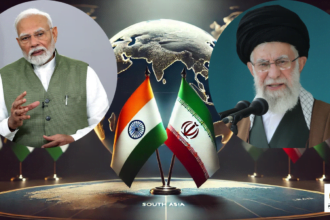The Middle East conflict has intensified between Israel and Hezbollah escalated significantly this week, with Israeli forces launching a series of aggressive airstrikes targeting Hezbollah rocket launcher barrels. This attack, which destroyed approximately 1,000 rocket launcher barrels, represents a critical moment in the ongoing conflict between the two powers. With the Middle East already fraught with political, military, and religious tensions, this event adds another layer of complexity to the region’s already delicate situation.
The Middle East Conflict: Israel's Strategic Airstrikes
On Thursday, September 20, 2024, Israeli fighter jets struck Hezbollah targets in southern Lebanon, focusing specifically on their rocket launchers. The Israel Defense Forces (IDF) announced that the airstrikes were designed to neutralize imminent threats, with the destroyed rocket launcher barrels being prepared for potential attacks on Israeli cities.
Hezbollah, a Shia Islamist militant group based in Lebanon and supported by Iran, has long been a source of concern for Israel. With Hezbollah’s military capacity continuously growing, Israel has often taken preemptive measures to prevent the group from launching attacks on its territory. These airstrikes are a continuation of that strategy, aimed at reducing Hezbollah’s ability to pose a significant threat.
The Hezbollah Threat: Retaliation Promised
Hezbollah leader Hassan Nasrallah issued a stern warning before the strikes, stating that the group would exact “tough retribution and just punishment” in response to any attacks on their positions. This rhetoric is typical of Hezbollah’s stance, which has always been one of active resistance against Israeli actions in the region. The destruction of 1,000 rocket launcher barrels is not just a military setback for Hezbollah but also a symbolic blow to their power base in Lebanon.
The risk of retaliation is now high, with Hezbollah expected to respond in some form. This escalation raises questions about whether this could lead to a broader conflict between the two sides. In the past, clashes between Israel and Hezbollah have escalated into wider regional conflicts, drawing in neighboring countries and external powers, including Iran.
Iran’s Role in the Middle East Conflict
One cannot discuss Hezbollah without acknowledging its close ties to Iran. The Iranian government has been a long-standing supporter of Hezbollah, providing the group with financial backing, weapons, and training. This support is part of Iran’s broader strategy to maintain influence in Lebanon and the wider Middle East, using Hezbollah as a proxy to challenge Israel and other rival powers.
The destruction of these rocket launcher barrels complicates this delicate balance of power. Iran has yet to formally respond, but any significant action from Hezbollah could draw Iran into a direct confrontation with Israel. This would significantly heighten tensions in the region, potentially dragging other countries into the conflict. The international community, particularly the United States and European nations, are closely monitoring the situation, concerned that any further escalation could destabilize the region.
Israel’s Strategy: Defensive or Aggressive?
Israel’s government, under Prime Minister Benjamin Netanyahu, has consistently taken a hardline stance when it comes to national defense. Netanyahu has emphasized that Israel will take all necessary measures to defend itself from Hezbollah and other threats in the region. The destruction of Hezbollah’s rocket launchers is part of this broader policy, with Israeli officials framing it as a preemptive measure designed to prevent future attacks.
While Israel maintains that its actions are defensive, many in the international community view them as aggressive and potentially destabilizing. Critics argue that by striking Hezbollah so forcefully, Israel risks provoking an all-out war in the region, one that could have devastating consequences not only for Israel and Lebanon but also for the broader Middle East.
International Reactions and Diplomatic Efforts
The international reaction to Israel’s airstrikes has been mixed. The United States has largely supported Israel’s actions, viewing them as a legitimate means of defending against Hezbollah’s threats. U.S. officials have long condemned Hezbollah as a terrorist organization and have supported Israel’s right to defend itself against militant groups.
However, other nations, particularly in Europe and the Middle East, have expressed concerns about the potential for this conflict to escalate. Lebanon has already lodged complaints with the United Nations, accusing Israel of violating its sovereignty with these airstrikes. Lebanese officials have also claimed that Israel has used explosives to disrupt Hezbollah’s communication infrastructure, further complicating the situation.
There have been calls for restraint from the international community, with diplomats urging both sides to avoid further military actions that could lead to a broader war. However, with tensions at an all-time high and both sides showing no signs of backing down, the situation remains precarious.
The Broader Impact on the Middle East
The ongoing conflict between Israel and Hezbollah is emblematic of the larger struggles plaguing the Middle East. At its core, this conflict is not just about two opposing groups but about the broader geopolitical dynamics of the region. The Israel-Hezbollah conflict is intricately tied to the power struggle between Iran and Israel, two of the Middle East’s most powerful and influential nations.
The destruction of Hezbollah’s rocket launchers will have far-reaching implications, not only for Lebanon and Israel but for the entire region. It threatens to further destabilize Lebanon, a country already grappling with economic crises, political instability, and the lingering effects of the Syrian Civil War. For Israel, while these airstrikes may provide temporary security, they also risk provoking a more intense and dangerous response from Hezbollah.
What’s Next in the Middle East Conflict?
As the situation continues to evolve, it is clear that the conflict between Israel and Hezbollah is far from over. With Hezbollah promising retaliation and Israel likely to continue its preemptive strikes, the potential for a broader regional conflict looms large. Diplomatic efforts will be crucial in the coming weeks to prevent further escalation and bring both sides to the negotiating table.
For now, the Middle East remains on edge, with the destruction of Hezbollah’s rocket launcher barrels serving as a stark reminder of the fragility of peace in the region.
Conclusion
The destruction of 1,000 Hezbollah rocket launcher barrels by Israeli forces marks a pivotal moment in the ongoing conflict between these two powers. While Israel has framed the strikes as a defensive measure, the potential for retaliation from Hezbollah—and by extension, Iran—could lead to a significant escalation in the region. As tensions continue to rise, the international community must work to mediate the situation before it spirals into a larger, more devastating conflict.









